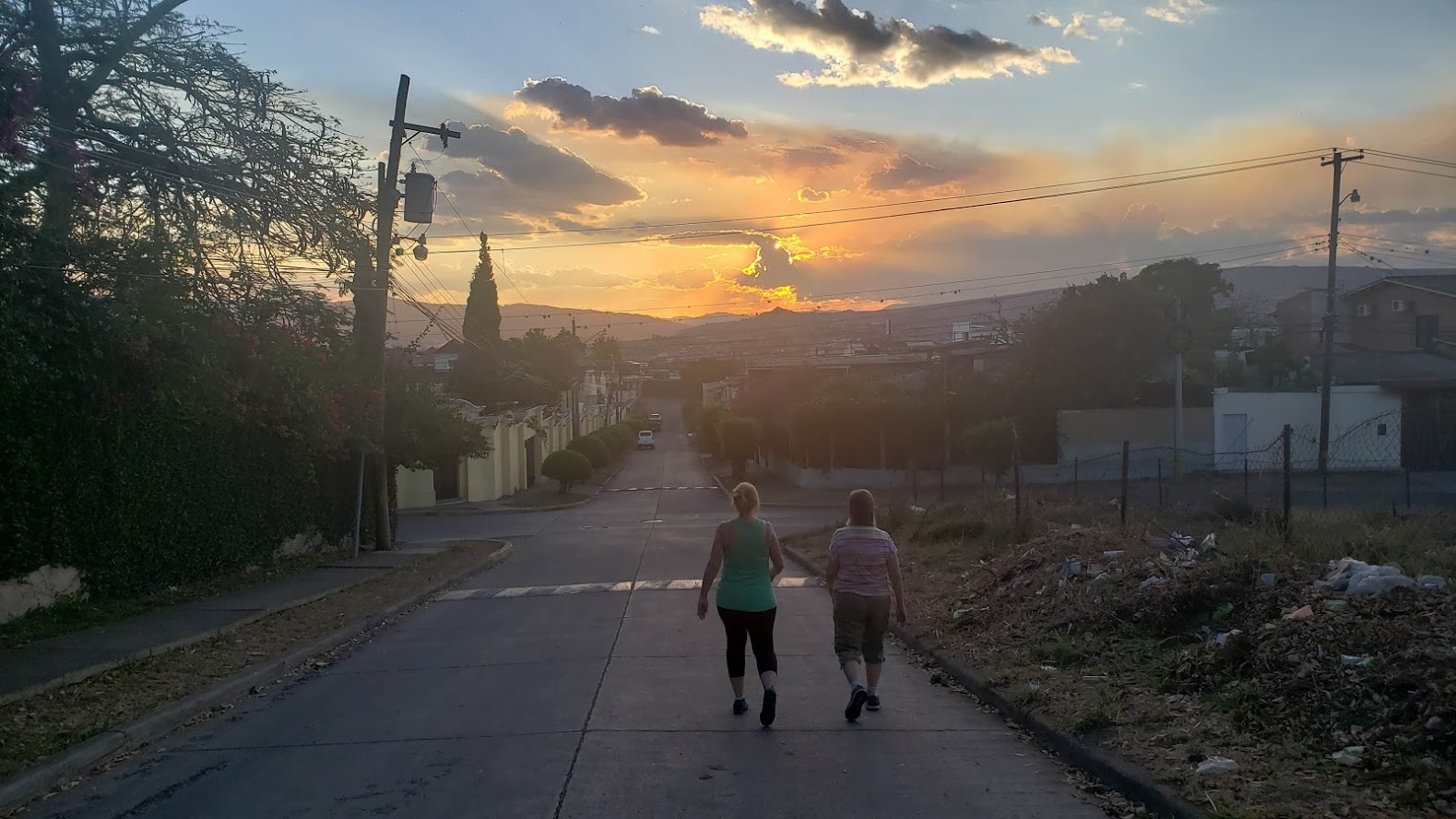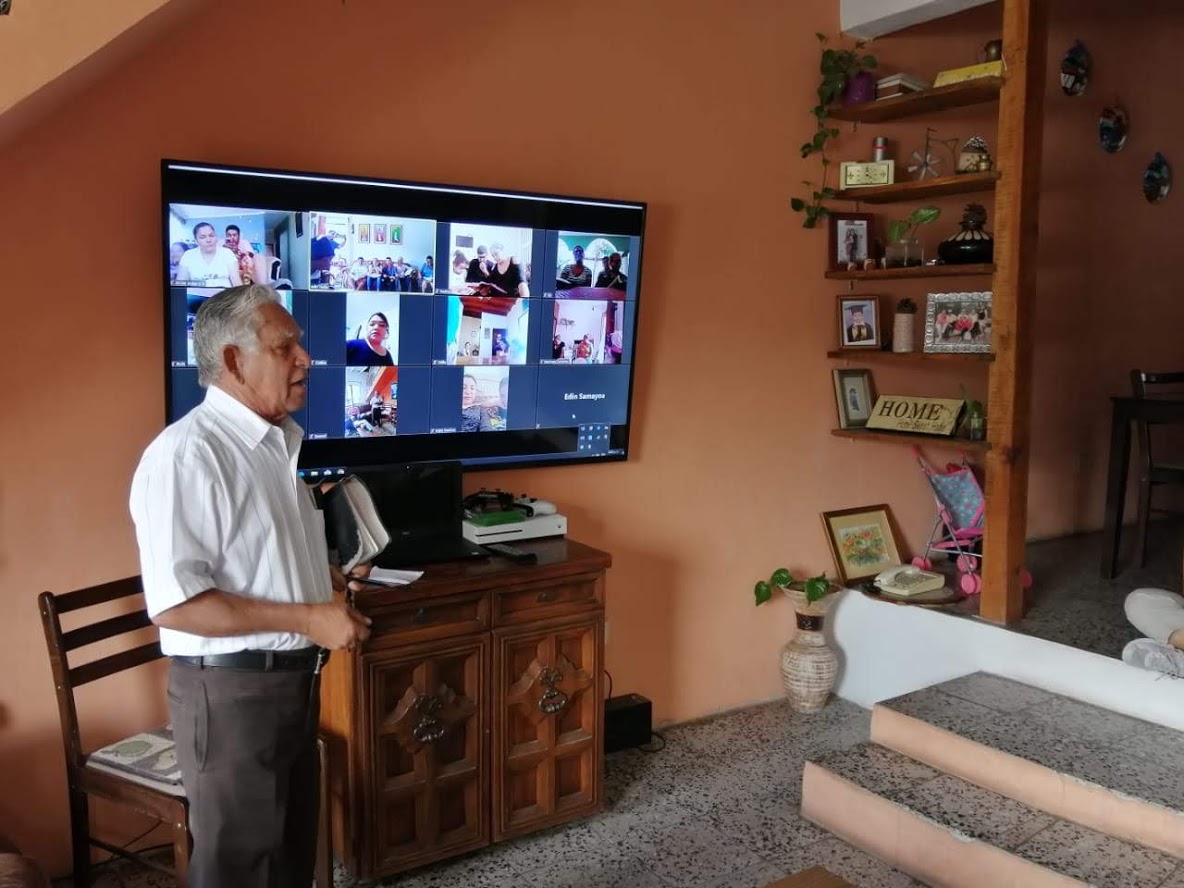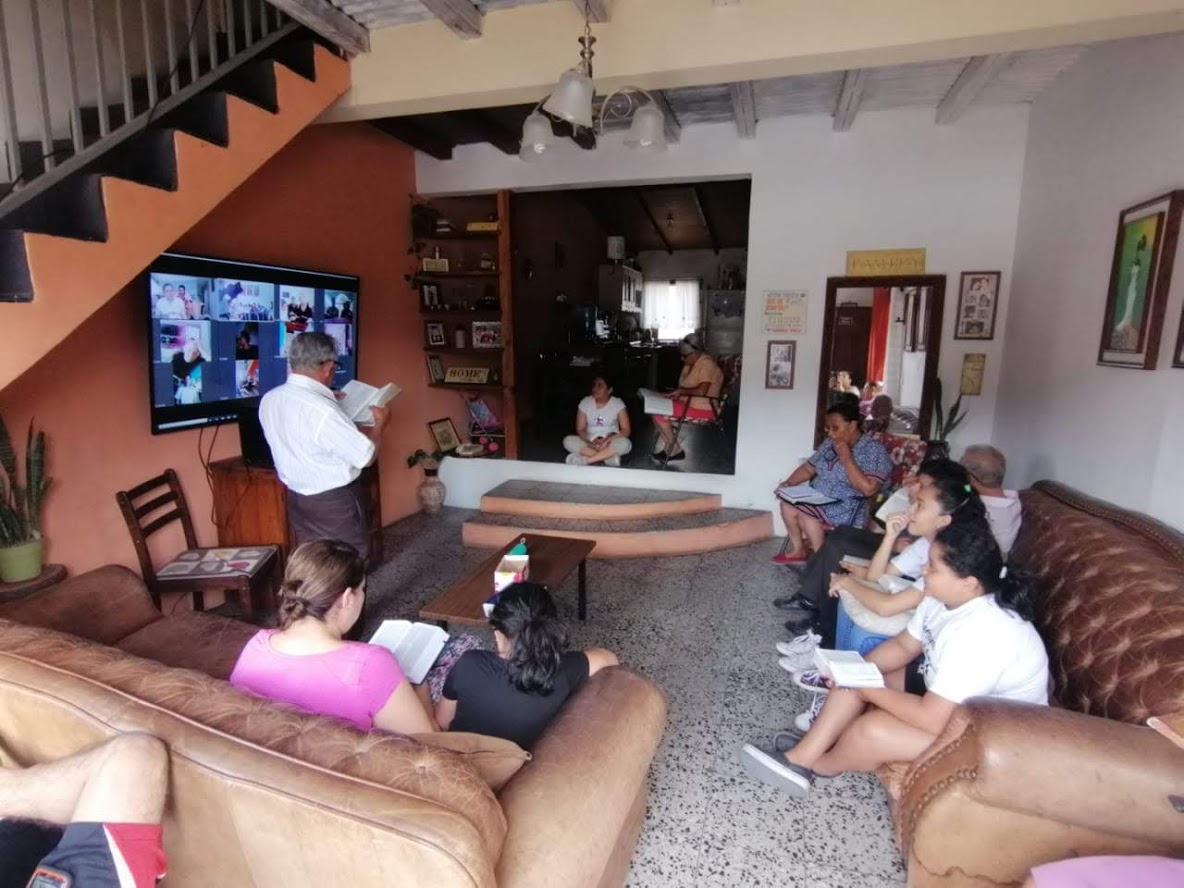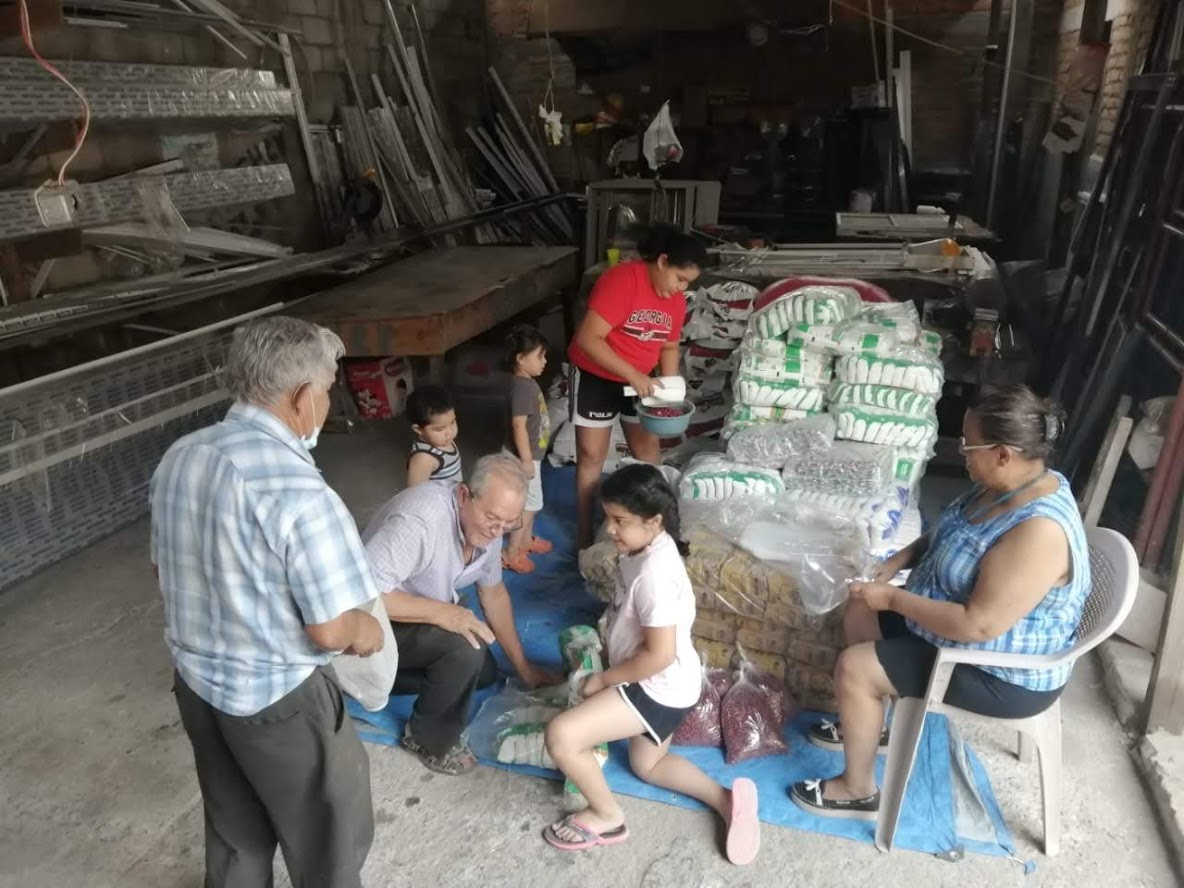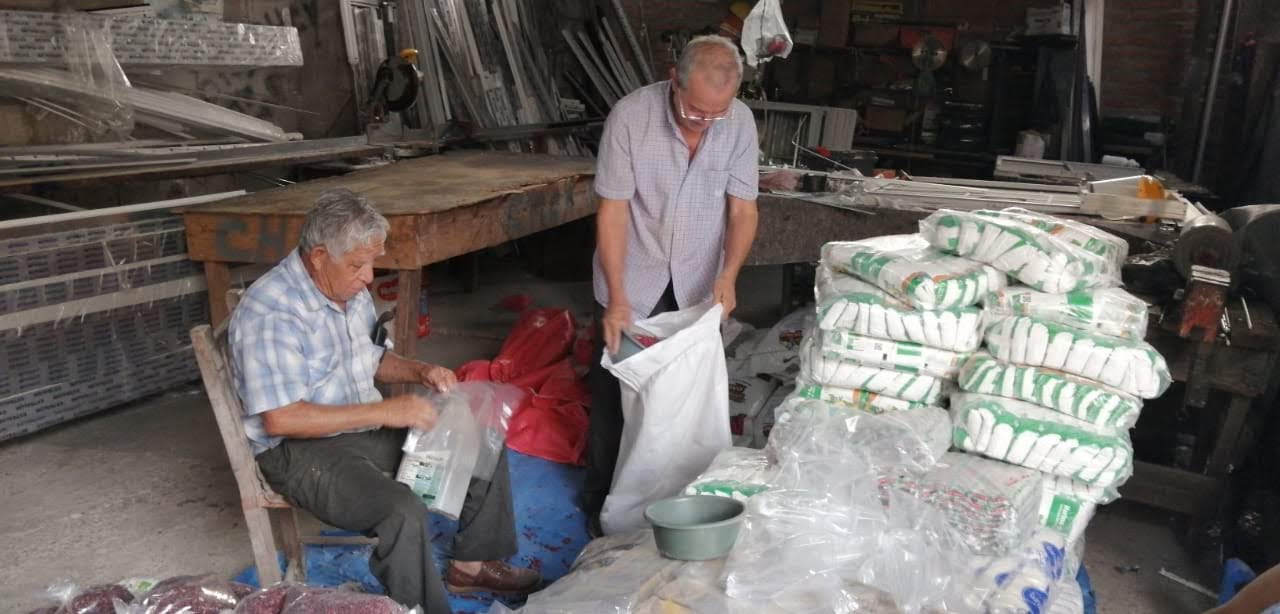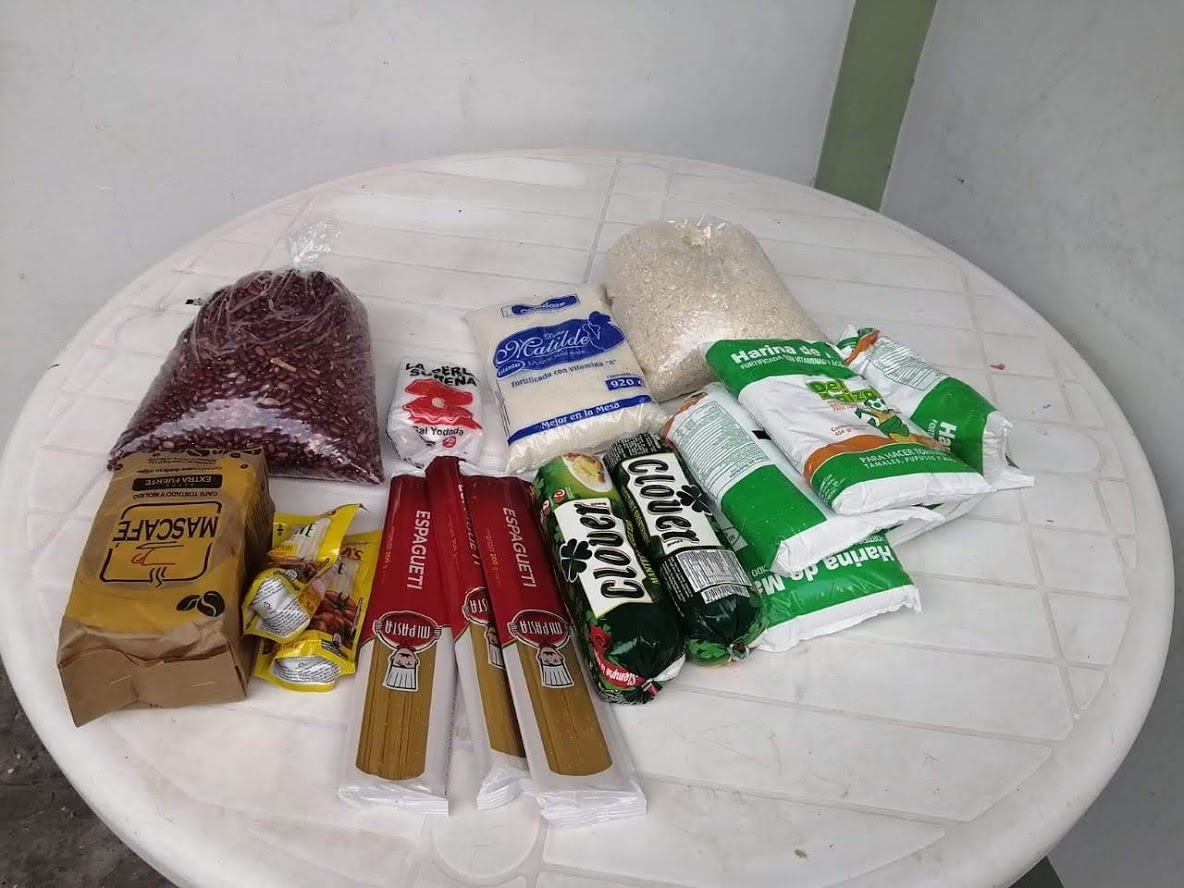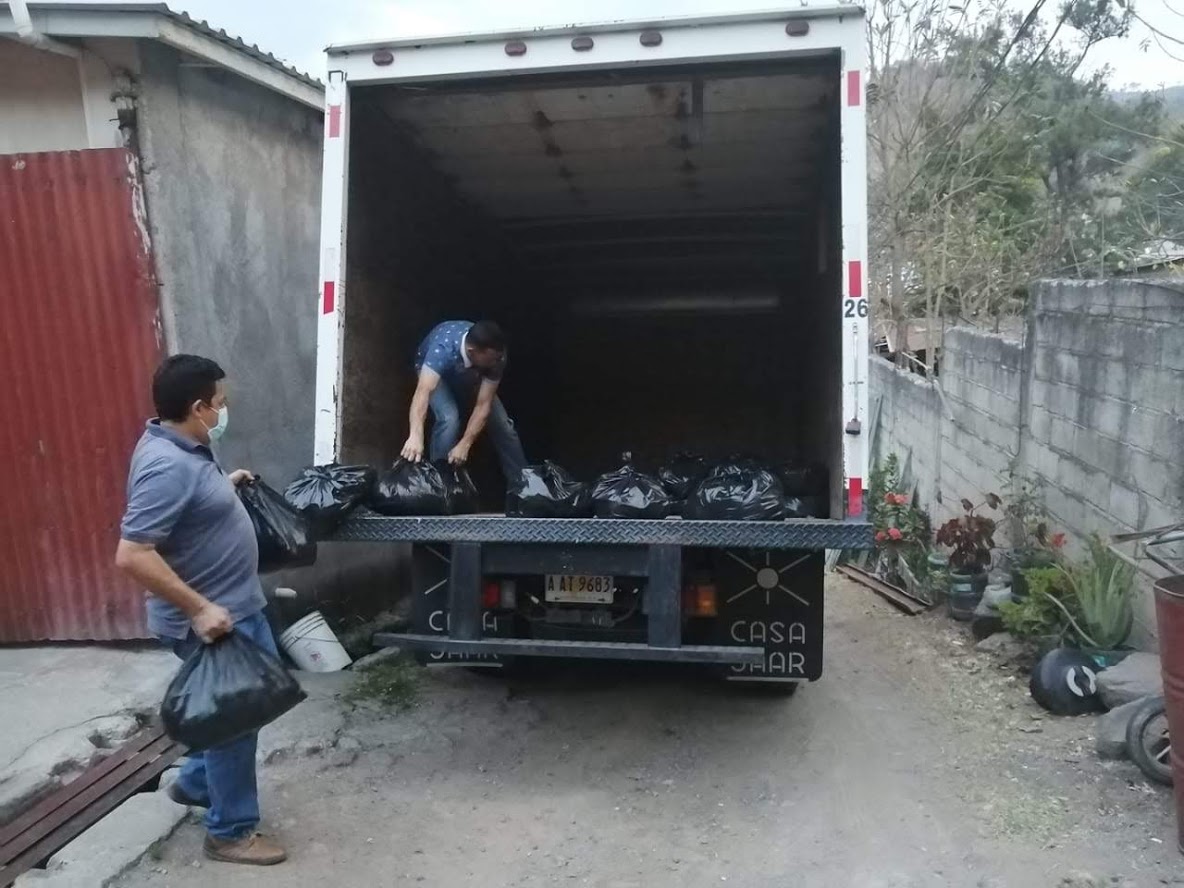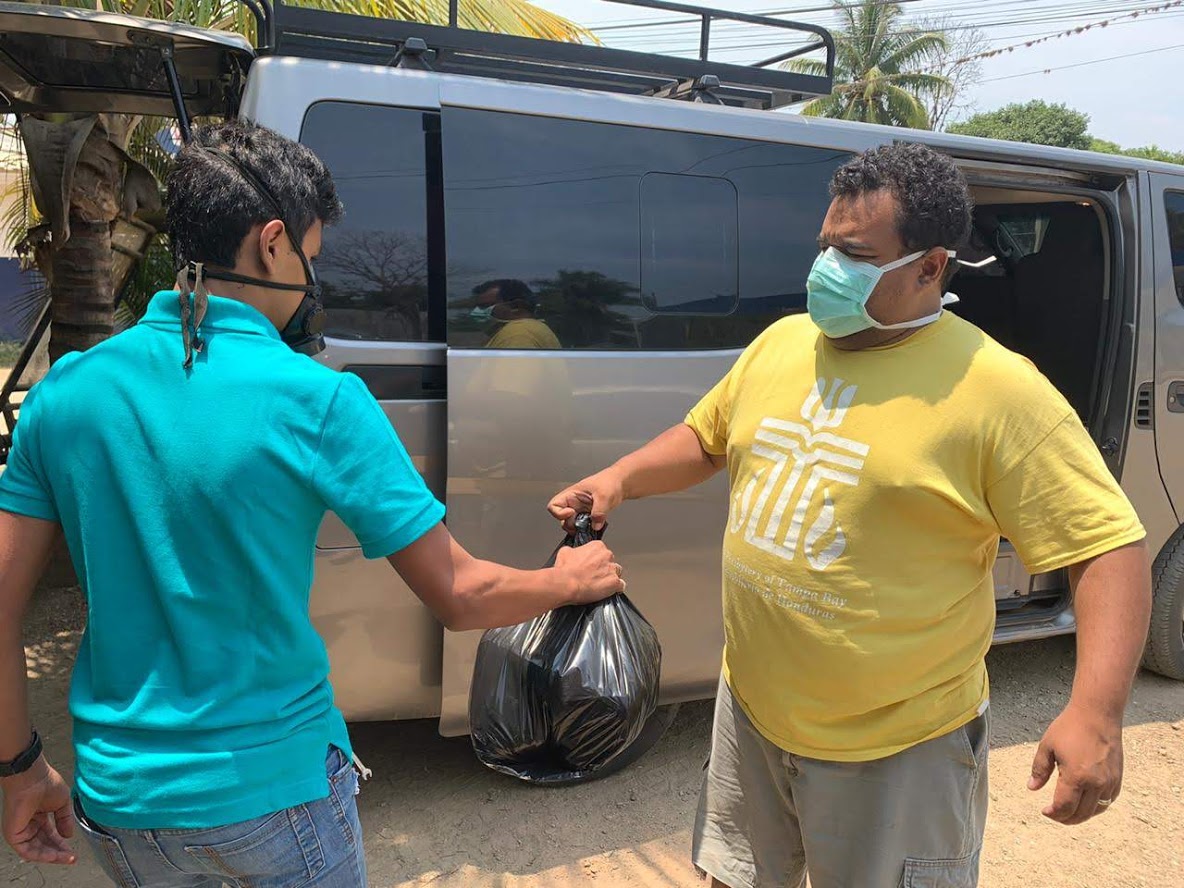A Letter from Dori Hjalmarson, serving in Honduras
April 2020
Write to Dori Hjalmarson
Individuals: Give online to E200535 for Dori Hjalmarson’s sending and support
Congregations: Give to D507592 for Dori Hjalmarson’s sending and support
Churches are asked to send donations through your congregation’s normal receiving site (this is usually your presbytery)
I have been in my house in Tegucigalpa for nearly four weeks. Since the country went into lockdown to prevent the spread of the new coronavirus, I have only left the house once. I took one brief trip to the airport to drop off a friend who got a ticket on one of the last commercial flights out of the country. As country after country began closing borders and ordering residents to stay home, Presbyterian World Mission gave all mission co-workers the option of returning to the United States. For me, it wasn’t a terribly difficult decision to stay in my adoptive home. I live alone. I have friendly and supportive neighbors and find daily comfort in my support network of Honduran citizens and North American residents of Hondurans who are also staying home.
I have been in daily contact with friends both local and across the globe. I have had regular reminiscence sessions with college buddies via Marco Polo. My parents threw me a Zoom birthday party for my 40th. I have been baking, crocheting, watching movies, consuming too much news, and also attending quite a lot of church on Facebook Live.
My home presbytery asked me to submit a short video for its planned online Easter service, asking participants to reflect on what has given them hope in recent weeks leading up to Resurrection Sunday. I could only talk about the activities of my mission partners, the Evangelical Presbyterian Mission of Honduras. As the country went into its second week of police-enforced lockdown, the leaders of this small but mighty church started counting: How many bags of beans do we need? How many families will be really strapped? How much money do we have available right now? The leaders started collecting donations from partners, calling to seek permission to travel, and placing orders with food wholesalers. Because of social distance mandates, the job of assembling food bags fell to one family. On Palm Sunday, two pairs of church members with two trucks drove out to deliver 250 bags of basic necessities to families across the 27 congregations of the presbytery. They plan to do it all again as soon as possible.
Watching this effort via WhatsApp messages from my colleague Alex Rodas, I told him, “Thank you for your servant’s heart and love for your neighbor.” He responded, “I thank the church for the opportunity to serve.”
Walking alongside partners like Alex: This is what gives me hope.
Some of the church’s food distribution effort is being funded by an emergency COVID-19 response grant from the Presbyterian Disaster Assistance agency. Thank you to all individuals and congregations who fund PDA.
If you would like to contribute to the mission’s emergency food aid effort and don’t have a connection through your own presbytery, you can give here: http://pma.pcusa.org/donate/make-a-gift/gift-info/E051650/
It now feels like ages ago, but one of my major activities in January and February was to help host a Presbyterian Peacemaking Program travel study seminar to examine the issues surrounding migration in the northern part of Central America: Guatemala, El Salvador, and Honduras.
International migration is normalized here and, at the same time, criminalized. Nearly everyone in the country has some family member or close friend “en el norte” in the United States, or to a lesser extent, Europe. “Migration in this country is also a rebellion, an act of transnational civil disobedience, of protest against the country, and the government that has abandoned us,” said a young person who works for an organization that protects women and children who experience forced migration. She spoke at a newly organized forum for political and social debate.The Honduran government over the past ten years has been investing less and less in public health and education, and more and more in prisons, arms, and police equipment. Besides the activity of gangs who extort businesspeople and citizens, narcotraffickers who have connections to the highest levels of government, and an economy dependent on remittances from overseas, many experts say that one of the factors pushing migrants from Honduras is the pervasive corruption and lack of confidence in the government’s will or ability to serve its everyday citizens.
Meanwhile, U.S. officials have been operating on the Guatemala-Honduras border, turning back Hondurans they suspect of intending to continue north, although regional agreements should guarantee safe travel between the two countries with only a national ID.
The United States government is trying to dissuade asylum seekers by forcing them to wait in other countries, by separating children from parents, and by manipulating Mexico and Central American countries into aligning with U.S. policy instead of their own regional agreements and interests. At the same time, the U.S. government has cut off aid to programs intended to fight corruption and impunity in Honduras, as well as looking the other way as Honduras’ leaders expel international corruption fighters and continue to repress public protest of its leadership.
As of mid-March, caravans were continuing to leave Honduras. They stood little chance of reaching the U.S. border. In two months, nearly 12,500 people have been returned to Honduras from Mexico or the United States. This number does not count the hundreds who have been turned back at the Guatemala border.
Meanwhile, despite border closings and the threat of spreading the coronavirus between our two countries, deportation flights from the United States continued to land in Honduras. U.S. citizens, seeking virus-related evacuation, were sold seats on the returning ICE-chartered planes. A friend who works for the United Nations in Honduras reported that the U.N. was setting up temporary quarantine shelters to house deported migrants for two weeks after they had landed.
Please continue to pray for Central America, particularly Honduras, for all people on the migrant route between our two countries, and all people waiting on the border or in third countries. Pray that our governments will protect their dignity and human rights, that their safety will be assured, and that our communities will survive this long walk through the valley of the shadow of death. May we fear no evil.
I covet your prayers and community at this time. I feel personally safe and healthy, although lonely and longing for a hug from a friend, any friend, and a milkshake from my favorite coffee house here in Tegucigalpa. Thank you for your continued support and care for me and the people of Honduras. Please consider giving to my sending and support fund through your congregation or presbytery, or at https://www.presbyterianmission.org/ministries/missionconnections/dori-hjalmarson/
-Dori
![]() You may freely reuse and distribute this article in its entirety for non-commercial purposes in any medium. Please include author attribution, photography credits, and a link to the original article. This work is licensed under a Creative Commons Attribution-NonCommercial-NoDeratives 4.0 International License.
You may freely reuse and distribute this article in its entirety for non-commercial purposes in any medium. Please include author attribution, photography credits, and a link to the original article. This work is licensed under a Creative Commons Attribution-NonCommercial-NoDeratives 4.0 International License.
